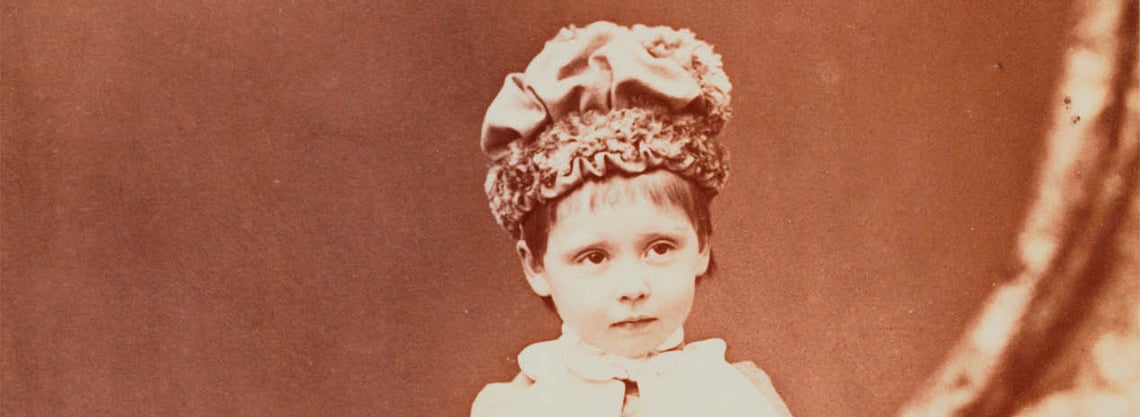
CHINESE
General Gordon, 1881
1881RCIN 84379
A brown leather frame decorated with gold crosses and with a plaque bearing the date '4 September 1898'. It contains an oval photograph of General Gordon, set into a black watered silk mount with pressed roses from his garden in Khartoum. Major-General Charles George Gordon first entered the Army as a cadet at Woolwich when he was fifteen, obtaining a commission in the Royal Engineers four years later. He took part in the Crimean War, afterwards surveying frontiers in Bessarabia, Erzerum and Armenia. Between 1860 and 1865 he served with distinction in campaigns in China, earning the name of 'Chinese Gordon'. He spent the next six years as commanding Royal Engineer at Gravesend, where he devoted his spare time to charity work, assisting local poor people. Further assignments included a term as governor of the equatorial provinces of Central Africa and another as commandant of the colonial forces in Basutoland. He had an intense Christian faith and spent much of 1883 in the Holy Land, investigating the biblical sites. In January 1884 he embarked in on his last mission, which was to evacuate the Sudan of rebels. At that time the Sudan was held by the Egyptian government but threatened by the rebel forces of the Mahdi. He was expected to rid the country of rebels and leave an organised independent government behind him. In Khartoum, he proclaimed the independence of the Sudan, but his requests to the British government for help were not granted. The Mahdi's forces attacked Khartoum on 12 March and Gordon fought to defend it for the next ten months. A relief expedition was finally sent, but arrived too late to save Gordon, who was killed at the end of January 1885. His death caused a universal outburst of grief and indignation that a man regarded as a hero should have been sacrificed by what was seen as the government's neglect. The thirteenth of March was observed as a day of national mourning. On September 1898, after the Battle of Omdurman and the reconquest of the Sudan by a force under Kitchener's command, the British and Egyptian flags were hoisted over the ruins of Gordon's palace in Khartoum. Queen Victoria wrote that 'surely he is avenged!'







